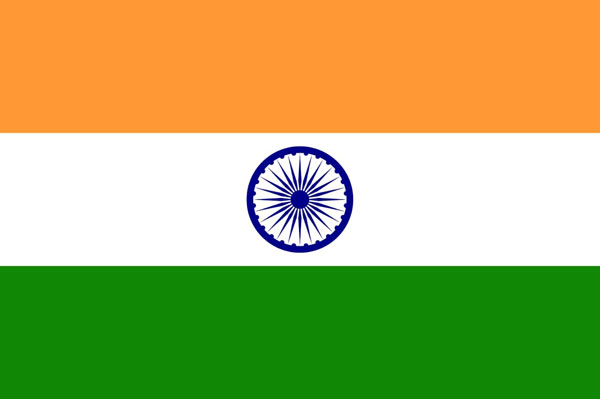INTRODUCTION
Prior to the year 1947, The Trade Disputes Act, 1929 used to settle industrial disputes. Experience of the working of the Act, 1929 revealed various defects which needed to be overcome by a fresh legislation.
The STATEMENT OF OBJECTS AND REASONS appended to the INDUSTRIAL DISPUTES BILL, 1946, which was published in The Gazette of India, 1946, Part V, pp. 239-240, reads thus: -
"Experience of the working of the Trade Disputes Act, 1929, has revealed that its main defect is that while restraints have been imposed on the rights of strike and lock-out in public utility services no provision has been made to render the proceedings institutable under the Act for the settlement of an industrial dispute, either by reference to a Board of Conciliation or to a Court of Inquiry, conclusive and binding on the parties to the dispute.
This defect was overcome during the war by empowering under Rule 81A of the Defence of India Rules the Central Government to refer industrial disputes to adjudicator and to enforce their awards. Rule 81 A, which was to lapse on the 1st October, 1946, is being kept in force by the Emergency Powers (Continuance) Ordinance, 1946, for a further period of six months; and as industrial unrest in checking which this rule has proved useful, is gaining momentum due to the stress of post industrial re-adjustment, the need of permanent legislation in replacement of this rule is self-evident.
This Bill embodies the essential principles of Rule 81 A, which have proved generally acceptable to both employers and workmen, retaining intact, for the most part, the provisions of the Trade Disputes Act, 1929. The two new institutions for the prevention and settlement of industrial disputes provided for in the Bill are the Works Committees consisting of representatives of employers and workmen, Industrial Tribunal consisting of one or more members possessing qualifications ordinarily required for appointment as Judge of a High Court. Power has been given to appropriate Government to require Works Committees to be constituted in every industrial establishment employing 100 workmen, or more and their duties will be to remove cause of friction between the employer and workmen in the day-to-day working of the establishment and to promote measures for securing amity and good relations between them.
Industrial peace will be most enduring where it is founded on voluntary settlement, and it is hoped that the Works Committees will render recourse to the remaining machinery provided for in the Bill for the settlements of disputes infrequent. A reference to an Industrial Tribunal will lie where both the parties to an Industrial Dispute apply for such reference, and also where the appropriate Government considers it expedient so to do. An award of a Tribunal may be enforced either wholly or in part by the appropriate Government for a period not exceeding one year.
The power to refer disputes of Industrial Tribunals and enforce their awards is an essential corollary to the obligation that lies on the Government to secure conclusive determination of the disputes with a view to redressing the legitimate grievances of the parties thereto, such obligation arising from the imposition of restraints on the right of strike and lock-out, which must remain inviolate, except where considerations of public interest override such rights.
The Bill also seeks to re-orient the administration of the conciliation machinery provided in the Trade Disputes Act. Conciliation will be compulsory in all disputes in public utility services and optional in the case of other industrial establishment. With a view to expedite conciliation proceedings time limits have been prescribed for conclusion thereof - 14 days in the case of Conciliation Officers and two months in the case of Board of Conciliation from the date of notice of strike. A settlement arrived at in the course of conciliation proceedings will be binding for such period as may be agreed upon by the parties and where no period has been agreed upon, for a period of one year, and will continue to be binding until revoked by a 3 month's notice by either party to the dispute.
Another important new feature of the Bill relates to the prohibition of strikes and lock-outs during the pendency of conciliation and adjudication proceedings of settlement reached in the course of conciliation proceedings and of awards of Industrial Tribunals declared binding by the appropriate Government.
The underlying argument is that where a dispute has been referred to conciliation for adjudication a strike or lock-out, in furtherance thereof, is both unnecessary and inexpedient. Where, on the date of reference to conciliation or adjudication a strike or lock-out is already in existence, power is given to the appropriate Government to prohibit its continuance lest the chances of settlement or speedy determination of the dispute should be jeopardized.
The Bill also empowers the appropriate Government to declare, if public interest or emergency so requires, by notification in the Official Gazette, any industry to be a public utility service, for such period, if any, as may be specified in the notification."
A Report of the Select Committee on the Industrial Disputes Bill, 1946 was published in the Gazette of India, Part V, pp. 33-35.
The Legislature discussed, amended and passed the Industrial Disputes Bill, 1947 in the light of the Original Bill and The Reported Bill.
Though the Industrial Disputes Bill, 1947 received the assent and came on the Statute Book on 11th March, 1947, the Legislature in its wisdom brought the Industrial Disputes Act, 1947 (14 of 1947) into force on 1-4-1947.
This Act was extended to -
- Goa, Daman and Diu by section 3 read with the Schedule of The Regulation No.12 of 1962.
- Pondicherry by section 3 read with the Schedule I of The Regulation No.7 of 1963; and
- Laccadive, Minicoy and Aminidivi Islands by section 3 read with the Schedule of the Regulation No.8 of 1965.
The Principal Act has been amended thirty-four times.
LIST OF ADAPTATION ORDERS AND AMENDING ACTS
- The Indian Independence (Adaptation of Central Acts and Ordinances) Order, 1948.
- The Industrial Disputes (Banking and Insurance Companies) Act, 1949 (54 of 1949).
- The Adaptation of Laws Order, 1950.
- The Repealing and Amending Act, 1950 (35 of 1950).
- The Industrial Disputes (Appellate Tribunal) Act, 1950 (48 of 1950).
- The Industrial Disputes (Amendment and Temporary Provisions) Act, 1951 (40 of 1951).
- The Industries (Development and Regulation) Act, 1951 (65 of 1951).
- The Industrial Disputes (Amendment) Act, 1952 (18 of 1952).
- The Industrial Disputes (Amendment) Act, 1953 (43 of 1953).
- The Industrial Disputes (Amendment) Act, 1954 (48 of 1954).
- The Industrial Disputes (Amendment and Miscellaneous Provisions) Act, 1956 (36 of 1956).
- The Industrial Disputes (Amendment) Act, 1956 (41 of 1956).
- The Industrial Disputes (Amendment) Act, 1957 (18 of 1957).
- The State Bank of India (Subsidiary Banks) Act, 1959 (38 of 1959).
- The Deposit Insurance Corporation Act, 1961 (47 of 1961).
- The Agricultural Refinance Corporation Act, 1963 (10 of 1963).
- The Unit Trust of India Act, 1963 (52 of 1963).
- The Industrial Development Bank of India Act, 1964 (18 of 1964).
- The Industrial Disputes (Amendment) Act, 1964 (36 of 1964).
- The Industrial Disputes (Amendment) Act, 1965 (35 of 1965).
- The Food Corporations (Amendment) Act, 1968 (57 of 1968).
- The Banking Companies (Acquisition and Transfer of Undertakings) Act, 1970 (5 of 1970).
- The Central Laws (Extension to Jammu and Kashmir) Act, 1970 (51 of 1970).
- The Industrial Disputes (Amendment) Act, 1971 (45 of 1971).
- The Industrial Disputes (Amendment) Act, 1972 (32 of 1972).
- The Banking Service Commission Act, 1975 (42 of 1975).
- The Industrial Disputes (Amendment) Act, 1976 (32 of 1976).
- The Banking Companies (Acquisition and Transfer of Undertakings) Act, 1980 (40 of 1980).
- The Export-Import Bank of India Act, 1981 (28 of 1981).
- The National Bank for Agriculture and Rural Development Act, 1981 (61 of 1981).
- The Industrial Disputes (Amendment) Act, 1982 (46 of 1982).
- The Industrial Disputes (Amendment) Act, 1984 (49 of 1984).
- The Industrial Reconstruction Bank of India Act, 1984 (62 of 1984).
- The National Housing Bank Act, 1987 (53 of 1987).
- The Small Industries Development Bank of India Act, 1989 (39 of 1989).
It is significant to notice that the Central Government, in exercise of the power conferred by section 1(2) of the Industrial Disputes (Amendment) Act, . 1982 (46 of 1982) on it, has not so far appointed any date for bringing the provisions of sections 2, 7 and 22 thereof into force.
Clause (c) of. section 2 substituted for clause (r) of section 2, section 7 inserted a new CHAPTER II B (containing section 9C) and section 22 inserted a new clause (ab) in section 38 (2) of the Principal Act.
Simply for the purpose of reference, ANNEXURE is devoted to the relevant texts.


 Labour Commissioner
Labour Commissioner 


